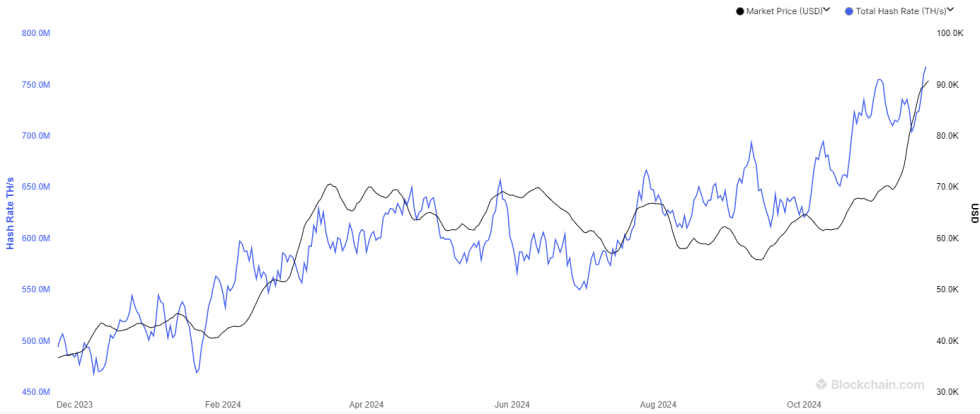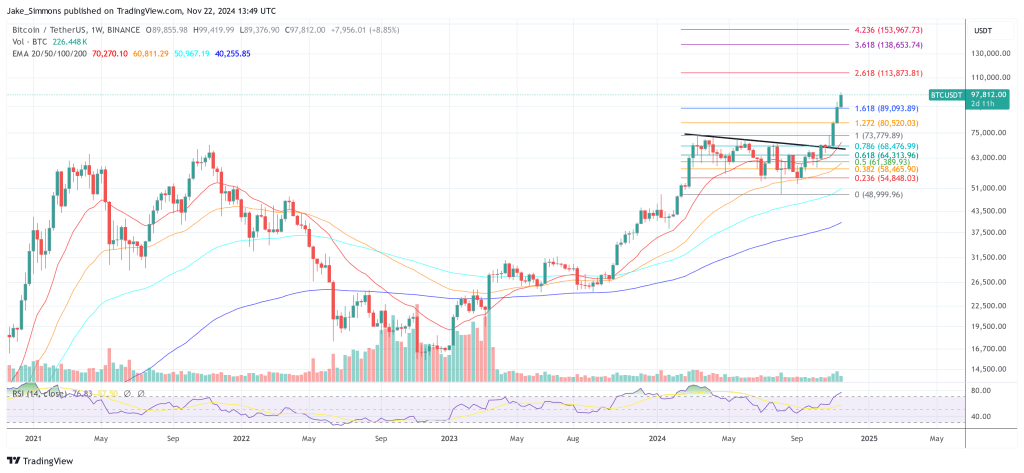
Irakli Beridze from the UN said that, at the moment, people within the UN do not see crypto as a positive force but understand it as “something we should be worried about.”
As Web3 regulation looms over Europe, executives from various parts of the industry highlighted different regulatory perspectives in a panel discussion at the European Web3 Summit 2023. The event is held at the Library Solvay in Brussels, Belgium, a historic location where Nobel Prize scientists, such as Albert Einstein and Niels Bohr, once gathered for conferences.
During the event, Cointelegraph’s managing editor, Alex Cohen, moderated a panel dubbed “Policies & Strategies for Web3 Transformation in Europe.” Panelists included Irakli Beridze, head of the Centre for Artificial Intelligence and Robotics at the United Nations; Ioana Surpateanu, non-executive director of CryptoUK; Hugo Volz Oliveira, founding member and secretary at New Economy Institute; Rapolas Lakavičius, policy officer at the European Commission; and Ricardo Simões, executive director of INATBA.

While the hour-long discussion highlighted various issues and topics related to regulating the Web3 space in Europe, some of the highlights included the arguments in terms of having or not having regulation and educating regulators on how Web3 and crypto can be a positive force.
The debate: To regulate or not to regulate
Offering the standpoint of the UN, Beridze highlighted that, at the moment, the UN does not have any kind of charter or convention that would regulate technologies like Web3. “We probably are far away from it, but at the same time, we do need to have the type of frameworks which would ensure that technology benefits us all,” he explained.
Despite the lack of conventions that regulate Web3, Beridze recognized that there is a need for these types of regulations, as they would ensure that benefits can be extracted from the technology while risks can be mitigated.
The idea was almost immediately rebutted by Surpateanu, who believes in letting the space develop more before introducing regulations. The CryptoUK executive highlighted that the space needs time and that it’s better not to over-regulate it. She explained:
“I do not think that with every new technology, we need to have regulations or policies. We automatically go into the mode of ‘Okay, something new is emerging. Let’s see how we can best regulate.’ What if we don’t need to regulate it at all and let it flourish? At least for a while.”
Oliveira agreed with some of Surpateanu’s sentiments in terms of having a more relaxed approach in terms of regulating Web3. However, the think tank executive also recognized that there should come a point where regulation should eventually come in.
“We need to have a more relaxed approach at the beginning to regulation, and I think we have been having that in Europe. Then, it reaches a stage in which something needs to be done, and clarity is welcomed,” he explained.
Oliveira also argued that if the right regulation exists, more people will be able to reap the benefits of the technology.

Lakavičius also sided with Oliveira in terms of regulating the space. According to Lakavičius, who works at the European Commission, their organization has been in contact with many stakeholders. The executive explained that they received an indication that regulation would be “very much welcome.” He said:
“European SMEs and other players would like to use various Web3 solutions, but they want to make sure that it’s done legally in mind with applicable rules and regulations.”
While most of the panel leaned into arguments on the need for regulating, Simões echoed the sentiments of Surpateanu. He highlighted that he does not want to be “cornered on the policy side.”
“The need for policy in this space comes from outside of the ecosystem looking into a very nascent ecosystem that has tremendous potential. [...] But it definitely has to be understood in order to pave the way into the massive adoption that we all want,” Simões explained.
Shifting the current crypto narrative at the UN
Another issue that was brought up within the discussion was how top policymakers view Web3 and crypto at the moment. Beridze explained that currently, people within the UN do not understand crypto as a positive force but that it is understood as “something that we should be worried about.”
Beridze added that there is a need to shift the narrative of crypto being used by terrorists and criminals and highlight to policymakers that there are benefits to Web3 and crypto as a solution and not just “used by criminals to hide money.”
Related: Crypto adoption is booming, but not in the US or Europe — Bitcoin Builders 2023
Following this, Simões also called on regulators to actually try to look at the evidence rather than just focusing on headlines as much of the attention is focused on the bad actors within the space. He explained:
“On blockchain protocols, and let’s go for the evidence. Let’s not stick to only the headlines, and only for the bad things that are actually reported more than, of course, the positive things.”
Surpateanu also agreed with the sentiment and highlighted that a large majority of the crypto space is working toward building to improve humanity, while a few involved in scandals and nefarious characters are always within the spotlight.
“We are in the liquid attention economy, and virality is the main element, and now you attach money to that virality and so here you go. You have a distorted version of reality,” she explained.
Magazine: Bitcoin in Senegal: Why is this African country using BTC?

You can get bonuses upto $100 FREE BONUS when you:
💰 Install these recommended apps:
💲 SocialGood - 100% Crypto Back on Everyday Shopping
💲 xPortal - The DeFi For The Next Billion
💲 CryptoTab Browser - Lightweight, fast, and ready to mine!
💰 Register on these recommended exchanges:
🟡 Binance🟡 Bitfinex🟡 Bitmart🟡 Bittrex🟡 Bitget
🟡 CoinEx🟡 Crypto.com🟡 Gate.io🟡 Huobi🟡 Kucoin.




















Comments